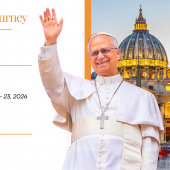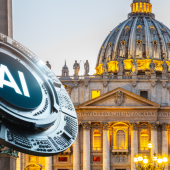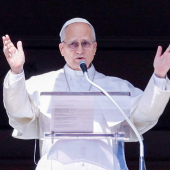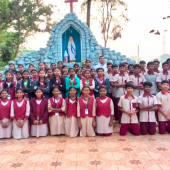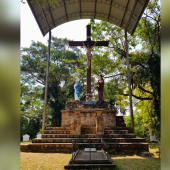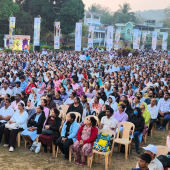Fill the shoes or blaze a new trail?
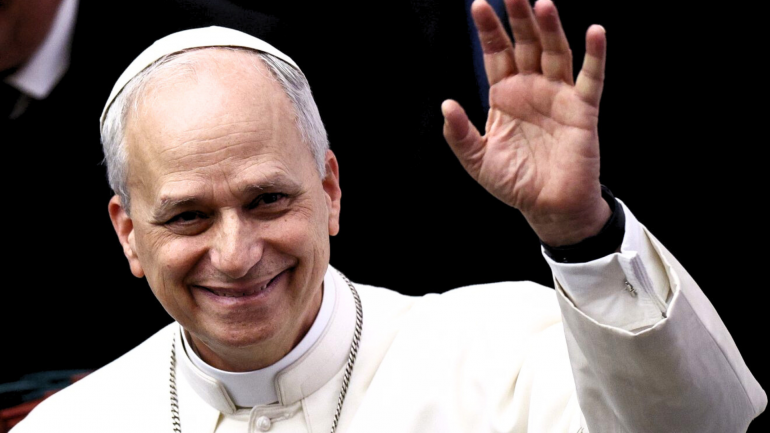
It is becoming increasingly evident that Pope Leo XIV is not just following in Pope Francis' footsteps but rather establishing his path.
Cardinal Robert Francis Prevost of Chicago made history by becoming Leo XIV, the first American to ascend to the papacy. The world now eagerly anticipates whether Pope Leo will uphold the progressive vision of his predecessor, Pope Francis, or forge his path through the intricate waters of Catholic leadership.
Francis' papacy was revolutionary in many ways. His famous "Who am I to judge?" remark regarding gay priests signaled a more welcoming stance toward LGBTQ+ Catholics. His landmark encyclical Laudato Si positioned the Church as a moral voice on environmental issues. He reformed Vatican finances, built bridges with other faiths, and consistently advocated for the marginalized. Those who follow in his footsteps undoubtedly have significant responsibilities to fulfill.
At first glance, Leo seems poised to continue this legacy. His background as a missionary working with the poor in Peru mirrors Francis' deep commitment to social justice. Leo's inaugural address spoke of "building bridges"—language that echoed his predecessor's focus on healing divisions. Having served as head of the Dicastery for Bishops under Francis, Leo helped appoint reform-minded leaders throughout the Church, suggesting alignment with Francis's vision for renewal.
Yet subtle differences are already emerging. Leo is characterized as pragmatic, cautious, and discreet, while Francis was bold and outspoken, frequently making headlines with provocative statements about capitalism or climate change. This temperamental contrast may signal a shift in both style and substance. While Francis made environmental advocacy a cornerstone of his papacy, Leo has yet to demonstrate the same passion for this cause, perhaps indicating different priorities.
On doctrinal matters, especially regarding LGBTQ+ issues, Leo might take a more conservative approach. During his cardinalate, he reportedly expressed reservations about some of Francis' more progressive stances. However, his close work with Francis recently and his decision to continue appointing women to Vatican leadership positions suggest he will not abandon inclusion entirely.
Leo's American nationality adds another dimension to his papacy. Francis, an Argentine, brought a non-Western perspective that resonated with Catholics in the Global South, where the Church is growing fastest. Leo must work deliberately to maintain this global credibility. His previous criticisms of harsh U.S. immigration policies offer hope that he will continue Francis' advocacy for migrants, though perhaps with less confrontational rhetoric.
The internal politics of the Church present another challenge. Francis' tenure saw intense debates between progressive and conservative factions over divorce, remarriage, and synodality. Leo's early references to "doctrinal rigor" and his choice of "Leo"—recalling Pope Leo XIII, a figure associated with tradition—have given conservatives hope that he might restore what they see as doctrinal clarity. Meanwhile, progressives point to his missionary background as evidence he will maintain Francis's reform agenda.
It is becoming increasingly evident that Leo is not just following in Francis' footsteps, but rather, he is establishing his path. His papacy will likely blend continuity with innovation, carrying forward Francis' compassion for the marginalized while perhaps bringing a distinctly American pragmatism to Vatican governance.
The Church faces daunting challenges: declining membership in Western countries, the ongoing clerical abuse crisis, and questions about its relevance in an increasingly secular world. Leo's success will depend on his ability to address these issues while balancing the competing visions within the Church itself.
Though it is still early in Leo's papacy, his initial actions suggest he understands the weight of his historic position. He has honored Francis' legacy by embracing some of his key priorities, particularly the focus on social justice. Yet Leo's more measured approach indicates he will not simply replicate his predecessor's papacy.
Perhaps the most fitting analogy is not about shoes at all but about paths. Francis blazed a trail of reform and inclusion that significantly altered the Church's direction. Leo now follows that path, but he does so in his own unique way. He will likely follow Francis' general direction while occasionally veering to explore terrain that reflects his vision and experience.
The faithful and observers alike would remember that every pope brings their unique perspective to an ancient institution that measures time in centuries, not years. Leo's papacy will be judged not by how well he mimics Francis, but by how effectively he guides the Church through its current challenges while remaining true to its core mission of compassion and service.
Ultimately, the question is not if Leo will emulate Francis, but rather if he will demonstrate the same bravery towards a constantly changing vision of the Church's role in the modern world.
Dr. John Singarayar, a priest of the Society of the Divine Word from the Mumbai Province in western India, holds a doctorate in anthropology. He contributes regularly to journals and publications focusing on sociology, anthropology, tribal studies, spirituality, and mission.
Radio Veritas Asia (RVA), a media platform of the Catholic Church, aims to share Christ. RVA started in 1969 as a continental Catholic radio station to serve Asian countries in their respective local language, thus earning the tag “the Voice of Asian Christianity.” Responding to the emerging context, RVA embraced media platforms to connect with the global Asian audience via its 21 language websites and various social media platforms.









